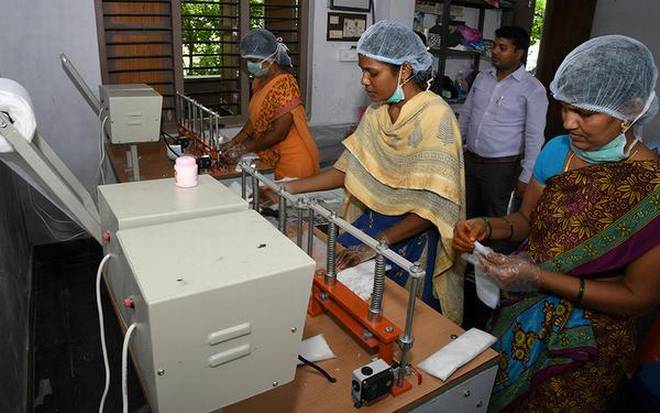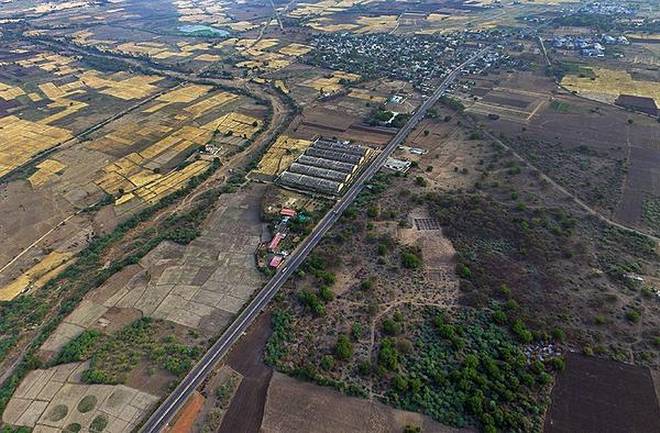
Sanitary napkins made by adivasi women of the State are in great demand.
In Telangana’s tribal belt, since February this year, adivasi women have been running four small units that produce sanitary napkins for free distribution to students in the tribal welfare hostels and ashram schools. Now, the region is set to get four more sanitary napkin production units, thanks to the demand for pads among young women in the adivasi community.
While the State has four such units currently running in Bhadrachalam, Utnoor, Mannanur and Eturnagaram, with a collective production capacity of 6,000 to 7,000 pads per month, the facilities in the pipeline are expected to increase the total production of napkins to 40,000 per quarter.
All the existing units were commissioned under the Integrated Tribal Development Agency (ITDA). Christina Z. Chongthu, Commissioner, Tribal Welfare, has already consulted with the ITDA to support the proposed units. As per the Commissionerate of Tribal Welfare in Hyderabad, talks are on with NGOs and commercial sanitary napkin units to support adivasi youth in sanitary napkin production in districts where tribal population is high.
Expansion plans
Speaking to The Hindu, N. Vijaykumar, deputy general secretary of the Girijan Cooperative Corporation, which distributes the pads among the adivasi students, said, “With the new units, we will be able to produce 40,000 sanitary napkins per quarter.” The napkins will then be supplied to women in the adivasi community who live in the tribal pockets near each manufacturing unit.
As per the 2018 report of the National Family Health Survey, 62% of women use cloth instead of sanitary pads. In most of the adivasi villages in Telangana, women were found to be using cloth or ash for menstrual protection. The pad-making units were set up primarily to support adolescent girls and young women enrolled in schools.
The decision to start more units came after demand for the pads increased, officials said. Once funds are sanctioned for starting the units, the four existing units will also undergo a technological upgrade. While the units in operation do not make the extra safe winged variety of pads, the new technology that is set to be introduced will make it possible.
The units have provided jobs to around 30 women in each unit, with altogether 120 adivasi women employed in the four facilities.
source: http://www.thehindu.com / The Hindu / Home> News> States> Telangana / by Nikhila Henry / Hyderabad – October 15th, 2018
